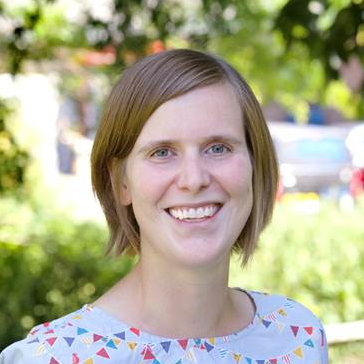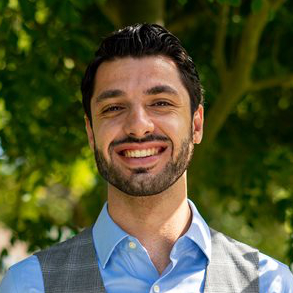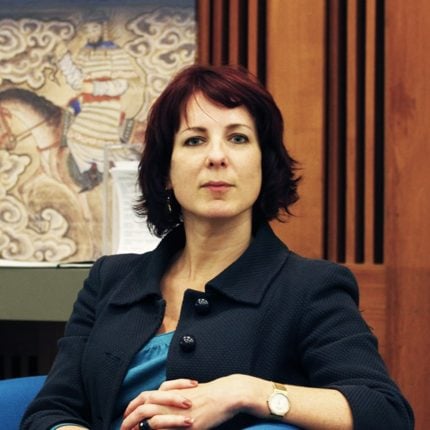
Wonkhe presents
Wonkhe @ Home: A micro-commission on the future of learning resources
Costs, access, and student engagement
Online
Get DirectionsThe Covid-19 pandemic is changing how students access learning resources. Students learning remotely have had to be able to link to key resources from within their virtual learning environment. The physical university library will certainly make a triumphant comeback post-pandemic – but the more accessible and flexible e-resources and textbooks will play a much greater role in the next normal than they did before. This also offers the possibility of rapidly increasing knowledge and understanding of students’ needs and behaviours when it comes to engaging with learning resources.
The acceleration of what was previously a gradual shift towards a more hybrid model of learning resource provision has created major tensions in the academic e-books market. Libraries argue that publishers are setting prices too high, academics are concerned that they cannot use the best materials to support learning, students complain they cannot access the resources they need at the price they are able to pay, and publishers worry that their business models are not fit for purpose.
We don’t know exactly what the future should look like, but we know things are changing more rapidly than anyone had anticipated. This Wonkhe @ Home event, in partnership with Kortext, will be a “micro-commission” on learning resources in which our expert commissioners, supported by you, the attendees, will hear the evidence on the changing needs of students, academics and university libraries, the available evidence of student engagement with learning resources, and where the gaps are, and tackle the thorniest of questions – who should pay for learning resources?
Agenda
09.30 Meet the commissioners
09.50 How is learning resource usage changing in the disciplines and in pedagogy?
10.40 Break
11.00 What do we know about student engagement with learning resources – and what don’t we know?
11.45 Who should pay for learning resources? Exploring the e-book market from all sides.
12.30 Initial reflections from commissioners
12.45 Close
Default title
Supporters
Wonkhe presents
Wonkhe @ Home: A micro-commission on the future of learning resources
Costs, access, and student engagement
Online
Get DirectionsThe Covid-19 pandemic is changing how students access learning resources. Students learning remotely have had to be able to link to key resources from within their virtual learning environment. The physical university library will certainly make a triumphant comeback post-pandemic – but the more accessible and flexible e-resources and textbooks will play a much greater role in the next normal than they did before. This also offers the possibility of rapidly increasing knowledge and understanding of students’ needs and behaviours when it comes to engaging with learning resources.
The acceleration of what was previously a gradual shift towards a more hybrid model of learning resource provision has created major tensions in the academic e-books market. Libraries argue that publishers are setting prices too high, academics are concerned that they cannot use the best materials to support learning, students complain they cannot access the resources they need at the price they are able to pay, and publishers worry that their business models are not fit for purpose.
We don’t know exactly what the future should look like, but we know things are changing more rapidly than anyone had anticipated. This Wonkhe @ Home event, in partnership with Kortext, will be a “micro-commission” on learning resources in which our expert commissioners, supported by you, the attendees, will hear the evidence on the changing needs of students, academics and university libraries, the available evidence of student engagement with learning resources, and where the gaps are, and tackle the thorniest of questions – who should pay for learning resources?
Agenda
09.30 Meet the commissioners
09.50 How is learning resource usage changing in the disciplines and in pedagogy?
10.40 Break
11.00 What do we know about student engagement with learning resources – and what don’t we know?
11.45 Who should pay for learning resources? Exploring the e-book market from all sides.
12.30 Initial reflections from commissioners
12.45 Close
Default title
Supporters
Speakers
-
![Michelle is a HE student transition and experience specialist and practitioner. She develops initiatives based on pragmatic and practical research to improve the experience of students and staff. The impact of her work is to enable students to succeed to the best of their ability in a high quality HE environment that challenges and supports them. She is recognised both nationally and internationally and has 29 years\' experience in Higher Education at a time of rapid change (8 years at University level, 21 years at Faculty level).]()
Michelle Morgan
Student experience transitions specialist & Dean of Students, University of East LondonMichelle is a HE student transition and experience specialist and practitioner. She develops initiatives based on pragmatic and practical research to improve the experience of students and staff. The impact of her work is to enable students to succeed to the best of their ability in a high quality HE environment that challenges and supports … Continued
-

Libby Homer
Director of Student and Library Services, Anglia Ruskin UniversityDirector of Student and Library Services, Anglia Ruskin University and chair of the content strategy group, SCONUL
-
![Ramy is the lead representative for the academic interests of 20,000 students, his role encompasses the function of an elected representative, company director and trustee for Brighton Students\' Union, a multi-million pound charity organisation. His membership on the University of Brightons Board of Governors, has allowed him to develop a sound knowledge of organisational strategy, financial operations and risk management. He is experienced in student engagement in quality assurance processes, higher education policy and academic integrity, and driven by an unwavering commitment to equality of opportunity and widening participation to higher education.]()
Ramy Badrie
Vice President Education, Brighton Students' Union and student panel member, Office for StudentsRamy is the lead representative for the academic interests of 20,000 students, his role encompasses the function of an elected representative, company director and trustee for Brighton Students’ Union, a multi-million pound charity organisation. His membership on the University of Brightons Board of Governors, has allowed him to develop a sound knowledge of organisational strategy, … Continued
-
![Lord Dearing Award winner in both 2006 and 2011. National Teaching Fellowship awarded by Higher Education Academy 2013. Substantial undergraduate and post-graduate teaching experience including large lecture and small group teaching, the use of seminar, tutorials, problem-based learning and laboratory practicals, and significant PhD/DPhil supervision experience (Oxford University, Imperial College London & University of Nottingham). Significant experience of the development, introduction and evaluation of novel, innovative and interactive teaching methodologies (Imperial College London & University of Nottingham).]()
Joanne Lymn
Head of School, Faculty of Medicine & Health Sciences, University of NottinghamLord Dearing Award winner in both 2006 and 2011. National Teaching Fellowship awarded by Higher Education Academy 2013. Substantial undergraduate and post-graduate teaching experience including large lecture and small group teaching, the use of seminar, tutorials, problem-based learning and laboratory practicals, and significant PhD/DPhil supervision experience (Oxford University, Imperial College London & University of Nottingham). … Continued
-

Miceál Barden
Dean of Arts, Business and Social Sciences, University of WolverhamptonA graduate of the Universities of Hull and King’s College London, Miceál was a researcher for the Standing Advisory Commission on Human Rights in Northern Ireland, then at the Law Commission in 1989 where he worked on law reform proposals. He started his HE career as a lecturer at East London Polytechnic and then Staffordshire … Continued
-
![Jo Webb is Head of Library Learning and Teaching Support at Sheffield Hallam University, She has been responsible for academic liaison, curriculum support and resource management at a number of universities, including senior roles at Queen Mary, University of London and De Montfort University. Jo is a Trustee of CILIP, the Library and Information Association, and holds a National Teaching Fellowship. She has published widely on aspects of academic librarianship, and holds degrees in history, librarianship and business administration.]()
Jo Webb
Head of Library Learning and Teaching Support, Sheffield Hallam UniversityJo Webb is Head of Library Learning and Teaching Support at Sheffield Hallam University, She has been responsible for academic liaison, curriculum support and resource management at a number of universities, including senior roles at Queen Mary, University of London and De Montfort University. Jo is a Trustee of CILIP, the Library and Information Association, … Continued
-
![Dr Highton leads services and projects in support of the University’s strategic priorities for digital and distance learning on global platforms, blended learning, virtual learning environments, technology enhanced learning spaces, the digital student experience and use of the web for outreach and engagement. She has particular interests in digital skills, 21st century curricula, open educational resources, research led teaching and online media. She leads the continuing expansion and diversification of the University website and provision of digital AV technology services in over 400 teaching rooms across the campus.]()
Melissa Highton
Director of Learning, Teaching and Web Services and Assistant Principal, University of Edinburgh.Dr Highton leads services and projects in support of the University’s strategic priorities for digital and distance learning on global platforms, blended learning, virtual learning environments, technology enhanced learning spaces, the digital student experience and use of the web for outreach and engagement. She has particular interests in digital skills, 21st century curricula, open educational … Continued
-
![James is the founder and CEO of Kortext. Prior to Kortext James was the owner of Coutts Information Services, which he sold to Ingram Group, where he became CEO of Ingram Digital based out of the USA. On leaving Ingram James returned to the UK to set up Kortext.]()
James Gray
Founder and CEO, KortextJames is the founder and CEO of Kortext. Prior to Kortext James was the owner of Coutts Information Services, which he sold to Ingram Group, where he became CEO of Ingram Digital based out of the USA. On leaving Ingram James returned to the UK to set up Kortext.
-

Kate O’Riordan
Dean of the School of Media, Arts and Humanities, University of SussexKate O’Riordan is Professor of Digital Culture and Dean of the School of Media, Arts and Humanities at the University of Sussex. She is the co-author of Furious: Technological Feminism and Digital Futures (Pluto, 2019) with Professor Caroline Bassett and Professor Sarah Kember. She has published widely on digital media and cultures of science and technology including Unreal Objects (Pluto, 2017) and The Genome Incorporated (Ashgate, 2010). She is currently working on sexuality and the algorithmic imaginary, biotechnologies and LGBTQ+ identities.
-
![Ichamati is currently a second year undergraduate student of Geography and Urban Planning.She is the Welfare Officer of the International Students\' Association at the University of Birmingham.]()
Ichamati Mousamputri
student, University of BiminghamIchamati is currently a second year undergraduate student of Geography and Urban Planning.She is the Welfare Officer of the International Students’ Association at the University of Birmingham.
-
![Alex is the Product Manager for Analytics at Kortext. Prior to Kortext Alex worked at Barclays Investment Bank and Deloitte & Touche and joined Kortext shortly after its founding in 2014.]()
Alex Lewis
Analytics and Finance Manager, KortextAlex is the Product Manager for Analytics at Kortext. Prior to Kortext Alex worked at Barclays Investment Bank and Deloitte & Touche and joined Kortext shortly after its founding in 2014.
-
![Kate is University Librarian at the University of Bath. She holds degrees in theology and librarianship and has worked in libraries since the 1980s, including: public libraries, private members’ libraries and the advertising industry; and as a lecturer in Information and Library Management. Kate’s interests are user focussed and she particularly enjoys collaborative projects which experiment with new ideas and new technologies. Kate is Vice President of CILIP, the UK’s Library and Information Association, Chair of CILIP’s Sector Development Committee, on the Board of Directors of the International Association of University Libraries and a Fellow of both the Royal Society of Arts and CILIP.]()
Kate Robinson
Librarian, University of BathKate is University Librarian at the University of Bath. She holds degrees in theology and librarianship and has worked in libraries since the 1980s, including: public libraries, private members’ libraries and the advertising industry; and as a lecturer in Information and Library Management. Kate’s interests are user focussed and she particularly enjoys collaborative projects which … Continued









